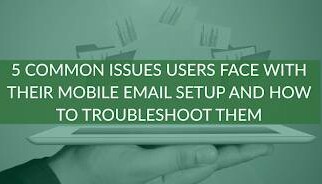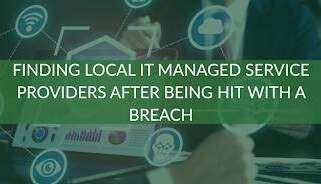What is the NCSBNA: Understanding North Carolina's Data Security Law
The North Carolina Security Breach Notification Act (NCSBNA) is a crucial legislation designed to protect the state's consumers' information. The act mandates that businesses and government entities notify affected individuals promptly if their personal identifying information has been compromised due to a security breach. Since its inception in 2005, the NCSBNA has evolved to address the growing concerns surrounding data privacy and the increasing number of security breaches affecting millions of North Carolina consumers.
The NCSBNA lays out clear guidelines for the definition of a security breach, the protected information types, and the dynamic nature of the notification requirements to ensure that consumers promptly know about the breach. By adhering to the NCSBNA, businesses and government entities demonstrate their commitment to maintaining the highest standards in data security, thus fostering an environment of trust and transparency that benefits all parties involved.
Key Takeaways
- The NCSBNA aims to protect consumers by requiring organizations to notify affected individuals of security breaches involving their personal information.
- Clear guidelines define the scope and requirements of the notification process, ensuring timely and effective communication to those affected.
- Compliance with the NCSBNA demonstrates a commitment to data security and fosters trust and transparency between organizations and their stakeholders.
Overview of NCSBNA
The North Carolina Security Breach Notification Act (NCSBNA) is a set of regulations that aim to protect the residents of North Carolina from the negative impacts of security breaches. The act outlines requirements for businesses and state and local government agencies when notifying the public of security breaches involving personal identifying information.
The NCSBNA defines a "security breach" as the unauthorized access or acquisition of unencrypted or unredacted records or data containing personal information where illegal use of personal information has occurred or is reasonably likely to occur, or that creates a material risk of harm. This includes financial data and other sensitive personal information that could be misused.
It is important to note that the NCSBNA specifies strict requirements for notifying affected individuals in the event of a security breach. For instance, businesses and government entities must notify the attorney general whenever they notify North Carolina residents of a breach. The notification process must include:
- A description of the incident
- The type of personal information breached
Also, there was a 1,000-person threshold for notifying the attorney general. However, this has been removed, meaning that the attorney general must be notified even if fewer than 1,000 people are affected.
Moreover, businesses and government entities are responsible for implementing and maintaining sufficient security measures to protect the personal identifying information of North Carolina residents. This responsibility also extends to monitoring any third parties with sensitive data access.
From the search results, it is clear that there have been amendments and proposed overhauls to the NCSBNA over the years, demonstrating the dynamic nature of information security and the need for continuous improvement in safeguarding personal data.
In conclusion, the North Carolina Security Breach Notification Act (NCSBNA) plays a vital role in protecting the personal information of North Carolina residents by setting specific requirements for breach notification and data security practices for businesses and government agencies. This helps mitigate the risk of identity theft and other potential harm from security breaches.

How long will it take
a hacker to crack your password?
Discover how to properly create your own strong password by downloading our FREE guide.
Download Your Copy NowScope and Definitions
Covered Entities
Under the North Carolina Security Breach Notification Act (NCSBNA), businesses and state and local government agencies must notify individuals if a security breach has compromised their personal information. These entities must also report security breaches to the Attorney General's Office. This demonstrates our commitment to protecting the personal information of North Carolina residents.
Personal Information Defined
According to the NCSBNA, personal information is defined as an individual's first name or first initial and last name combined with any of the following data elements:
- Social Security number
- Driver's license number or state identification card number
- Financial account numbers, such as credit card or bank account numbers, along with any security codes, passwords, or access codes required to access the account
- Biometric data, including fingerprints or facial recognition data
- Unique electronic identifiers, such as email addresses, when combined with passwords or security questions and answers
It is important to note that the NCSBNA applies to data in unencrypted or unredacted formats. It also includes a security breach definition as the unauthorized access or acquisition of such records where illegal use of personal information has occurred or is reasonably likely to occur, or the breach creates a material risk of harm to the affected individual(s).

Are You FTC SafeguardsRule Compliant?
Download this checklist to know the FTC Safeguards Rule.
Download NowBreach Notification Requirements
Triggering Events
Under the North Carolina Security Breach Notification Act (NCSBNA), businesses and state or local government agencies must provide notice when specific triggering events occur. One of the primary events is the unauthorized access or acquisition of personal information that has been breached. This situation must put affected individuals at risk of identity theft or fraud. Additionally, the act applies to electronic and non-electronic forms of personal information.
Timing of Notification
After discovering or being notified of a security breach, businesses and agencies must act promptly to notify affected individuals. The NCSBNA mandates that this notification should happen without unreasonable delay, allowing for necessary investigative measures and efforts to restore the integrity of the breached system, following the law. Acting quickly to minimize the potential harm to affected individuals is crucial.
Form of Notification
Organizations must provide key information when notifying affected persons about a security breach under the NCSBNA. This includes:
- A general description of the security breach incident.
- The type of personal information compromised in the breach.
- A general statement describing the efforts made to prevent further unauthorized access to personal information.
- A telephone number where individuals can call for additional information and assistance (if available).
- Advice or steps for the affected individuals to protect themselves from potential identity theft or fraud.
Notifications can be delivered through various channels, such as written notice, electronic notice (with the individual's consent), or telephonic notice. In some cases, substitute notice methods, like email, website posting, or statewide media, may be used if the cost of direct notification is prohibitive or the affected population is too large.
By following these breach notification requirements under the NCSBNA, businesses, and government agencies can ensure a prompt response to security breaches and minimize the potential impact on affected individuals.
Exemptions and Special Cases
This section will discuss the notable exemptions and special cases within the North Carolina Security Breach Notification Act (NCSBNA).
Encryption Safe Harbor
Under the NCSBNA, a "security breach" is defined as the unauthorized access or acquisition of unencrypted or unredacted records or data containing personal information, where illegal use of the personal information has occurred or is reasonably likely to occur, thus creating a material risk of harm. It is important to emphasize that if the data is encrypted and hasn't been deciphered or acquired along with the encryption key, then the organization may not be obligated to provide a breach notification. This encryption safe harbor encourages businesses to secure their data to minimize the chances of data breaches with severe consequences.
HIPAA Covered Entities
The Health Insurance Portability and Accountability Act (HIPAA) is a federal legislation that covers entities handling protected health information (PHI). In North Carolina, the NCSBNA exempts HIPAA covered entities from its provisions as long as they comply with the HIPAA breach notification requirements. As a result, these entities must adhere to the federal rules for data breach notification, which includes providing notification to affected individuals, the Department of Health and Human Services, and, in some cases, the media. This exemption paves the way for streamlined compliance processes for organizations subject to HIPAA and NCSBNA without contradicting or overlapping regulations.
To conclude, the North Carolina Security Breach Notification Act has several exemptions and special cases designed to enhance the statute's effectiveness in protecting personal information. These exemptions, including the encryption safe harbor and the HIPAA-covered entities, create a balance between avoiding duplicative regulations and encouraging organizations to adopt security measures to protect sensitive data.
Penalties and Enforcement
Attorney General Notification
Under the North Carolina Security Breach Notification Act (NCSBNA), businesses experiencing a security breach are required to notify the Attorney General of North Carolina. Suppose an entity provides notice to more than 1,000 persons at one time. In that case, the entity must also notify, without unreasonable delay, all nationwide consumer reporting agencies of the notice's timing, distribution, and content.
We must remember that swift notification to the Attorney General and other relevant authorities is crucial. This allows law enforcement to investigate the breach and potentially mitigate any further damage from the unauthorized access.
Civil Penalties
The NCSBNA specifies civil penalties for non-compliance in case of a data breach. Failure to comply with the breach notification requirements can result in a violation of the North Carolina Unfair and Deceptive Trade Practices Act. The civil penalty per violation, as specified in N.C. Gen. Stat. § 75-15.2, can be up to $5,000.
Businesses need to understand that penalties may accumulate over time, especially given that each day the violation continues is considered a separate violation. Also, bear in mind that penalties can be applied per affected individual, meaning the total cost of non-compliance could be substantial.
In conclusion, adhering to the requirements of the NCSBNA, such as notifying the Attorney General promptly and fulfilling other obligations, can help businesses minimize the risk of incurring significant civil penalties.
Best Practices for Compliance
Risk Assessment Procedures
We need to conduct regular risk assessments to comply with the North Carolina Security Breach Notification Act (NCSBNA). These assessments help us identify potential vulnerabilities in our systems and processes. Some key steps to perform a successful risk assessment include:
- Inventory of assets: Identifying all hardware, software, and data assets that contain personal information within our infrastructure.
- Risk identification: Analyzing possible threats to our systems' confidentiality, integrity, and availability of personal information.
- Prioritization: Categorizing identified risks based on the likelihood of occurrence and the potential impact on the organization.
- Mitigation strategies: Developing and implementing measures to reduce, eliminate, or transfer the encountered risks.
- Regular review: Continually evaluate and update our risk assessment procedures to account for changes in our environment or new information.
Employee Training
To ensure compliance with the NCSBNA, we must provide employee training that covers the Act's requirements and our internal security policies. The training should include information on:
- Protecting personal information and the potential consequences of a data breach is important.
- Proper handling, storage, and disposal of personal information.
- How to identify potentially suspicious activity that may indicate a breach.
- Procedures to follow in the event of a suspected or actual breach.
An effective training program should be ongoing and continually updated to reflect the evolving threat landscape and regulatory changes.
Incident Response Planning
Developing a comprehensive incident response plan is critical for timely and effective handling of security breaches. The plan should outline steps to:
- Detect: Identify the occurrence of a data breach through monitoring tools, personnel observations, or third-party notifications.
- Contain: Isolate the affected systems to prevent the breach from expanding and limit the damage caused.
- Assess: Evaluate the nature and extent of the breach, including determining the type of data affected and the potential harm caused to the individuals and our organization.
- Notify: Inform the North Carolina Department of Justice, affected individuals, and other relevant parties as required under NCSBNA.
- Recover: Restore the affected systems and data, implementing additional security measures if necessary.
- Review: Analyze the incident and response actions, adjusting our security policies, employee training, and risk assessment procedures as needed.
By following these best practices for compliance, we can help to ensure our organization meets the requirements of the North Carolina Security Breach Notification Act and minimize potential harm from security breaches.
Recent Amendments and Updates
There have been some key changes and proposed amendments to the North Carolina Security Breach Notification Act (NCSBNA) in recent years. These amendments aim to provide better security and protection for the personal information of North Carolina residents.
One significant change has been the removal of the 1,000-person threshold for notifying the attorney general of a data breach. Previously, businesses were only required to notify the attorney general if more than 1,000 residents were affected. Now, businesses must notify the attorney general anytime they notify residents of a breach, regardless of the number of people affected.
Additionally, the requirements for breach notifications have been expanded. Notifications must now include:
- A description of the incident
- The type of personal information breached
- An overview of any protective steps that the individual can take in response to the breach
The proposed bill also emphasizes data security breach notifications while creating affirmative data-security obligations. Furthermore, additional obligations on consumer reporting agencies and consumer reports have been included in the bill.
These amendments reflect the growing importance of protecting the personal information of North Carolina residents. By updating and strengthening the NCSBNA, we strive to stay ahead of evolving threats and foster a secure environment for all.

See How PCS Can Remove All The Headaches Associated With Your IT Systems
- Fully Outsourced Managed IT Services
- Comprehensive Cybersecurity Solutions
- Digital Transformation Technologies
We're Just Super Nice People Taking Care Of Organizations In Raleigh, Durham & The Triad.
Schedule An AppointmentHow Progressive Computer Systems Helps With the North Carolina Security Breach Notification Act NCSBNA
At Progressive Computer Systems, we understand the importance of staying compliant with the North Carolina Security Breach Notification Act (NCSBNA). Our team of cybersecurity experts aims to create a secure IT environment for your business while fulfilling the legal obligations that come with handling sensitive data.
To make sure your organization stays aligned with the NCSBNA, Progressive Computer Systems provides the following services:
- Security Monitoring and Protection: Our team meticulously monitors your IT systems to detect possible security breaches, ensuring a swift response when necessary. This proactive approach greatly reduces the risk of unauthorized access to personal information.
- Insurance and Compliance Support: We offer assistance in completing any required insurance or compliance forms, further reducing the burden on your company and ensuring strict adherence to the NCSBNA.
- Employee Onboarding and Offboarding: We ensure new employees receive proper IT setup and security training. Equally important, we manage the offboarding process by restricting access and updating user information to protect against potential data breaches due to former employees.
- Password and User Management: Strong password policies and user access control are essential for securing sensitive data. Our team helps you maintain best practices for managing passwords and credentials under the NCSBNA.
- Managed Servers and Email: Whether your servers are on-site or in the cloud, we monitor them and provide secure email management, reducing the likelihood of unauthorized access or breaches that could trigger NCSBNA notifications.
By partnering with Progressive Computer Systems, you receive comprehensive IT services and technology support to ensure your business complies with the North Carolina Security Breach Notification Act. Trust us to protect your valuable data and focus on what you do best - running your business.



